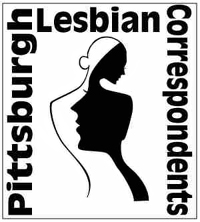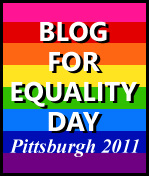E.J. Dionne identifies a 2009 shift:
It is 2009's quiet story -- quiet because it's about what didn't happen, which can be as important as what did.
In this highly partisan year, we did not see a sharpening of the battles over religion and culture.
Yes, we continued to fight over gay marriage and arguments about abortion were a feature of the health-care debate. But what's more striking is that other issues -- notably economics and the role of government -- trumped culture and religion in the public square. The culture wars went into recession along with the economy.
The most striking transformation occurred on the right end of politics. For now, the loudest and most activist sections of the conservative cause are not its religious voices but the mostly secular, anti-government Tea Party activists.
So what does this shift portend for the LGBTQ community? One thing is an opportunity to localize and more effectively personalize the dialogue which changes hearts and votes. However, the patchwork approach to civil rights has proven ineffective as ensuring equality and justice for Americans. President Obama's continued neglect of national LGBT issues offers no comfort for him to confront a nation still divided. The shift, however, has driven support for the next national test of LGBTQ equality -- the Employment Non-Discrimination Act (ENDA) -- which may come up for a vote in the Spring. Pennsylvania is wrestling with this issue on both the federal level (Altmire still not fully on board) and statewide vis a vis HBm300 which would extend those employment protections as well as to the housing and public accomodation sectors.
But the shifting dialogue to economics and the role of government are also interesting to consider. Certainly, discussions around economics should be part of the "gay agenda" dialogue as the myth of gay affluence needs a good piercing and some attention should be paid to the economic realities of the queer families who fall into the working classes and, sometimes, in to poverty. I personally think marriage equality would help our overall economic situation, but access to affordable housing, decent paying jobs and domestic partner health insurance is a more immediate way to lift queer families out of poverty (or avoid falling into it).
Small government advocates by definition would seem to be fine with marriage equality as long as government isn't intruding into religions (or religions intruding into government). I'm not a fan of small government, but I welcome alternative voices within the Republican Party.
The PG thinks there are gay overtones in Sherlock Holmes.
We missed the news that camera could be in the courtroom over Prop 8.
Video cameras, long banned from most federal courtrooms, could be used in civil trials throughout the West under a new initiative in the federal judiciary's Ninth Circuit. One of the first cases to be televised could be next month's hearing over a challenge to California's same-sex marriage ban.
Finally, the Tribune Review has a piece on civil disobedience in the faith community.





